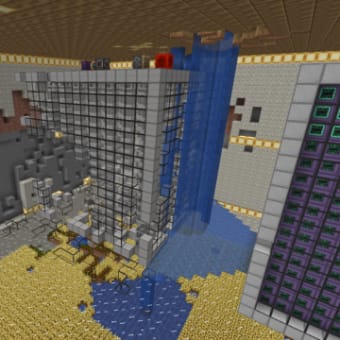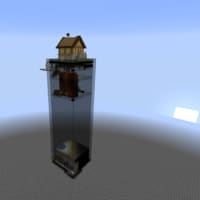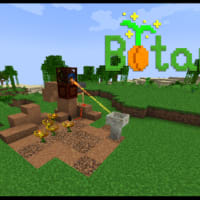ゲームの動機付け・認知的利点を特に調べている私でさえ、教育目的で利用することに多少の違和感というか、嘲笑いを知覚する。
どこか、たかが娯楽と思えてしまう。
あんなのただ視聴覚を過敏に刺激するだけのおもちゃであり、我々が常日頃から思案する五感にあふれた現実とは格が違う、と。
ゲームの利点を知覚するのであれば、まずはそこから払しょくするべきだろう。
つまり、遊びや娯楽がもたらす利益について理解する必要がある。
古代ローマではパンとサーカスが求められ、1940~50年代には探索行動に関する解像度の低さから動因低減説が棄却されたように、それが人間の発達に欠かせないものである、と。
ゲームは特に問題解決・意思決定・実験的行為などの高次の認知能力を用いる代替的な空間として機能する(Annetta, L. A. 2008)。
現実には不可能なことを、現実ギリギリまで寄せた文脈での施行も可能である(Dondlinger, Mary. 2007)。倫理的な制限を無視するなら、殺人事件とその周辺の再現なんかもできちゃう。
また、どのようにすれば不快感なくゲームをプレイできるかといった、人間の認知能力の分析やデザイン構築などの認知的要因もそこに含まれる。
ゲームの楽しさは心理学の言葉で十分に解釈可能なものである(Immersyve Inc. 2007)。
特に、直観的操作や失敗時のコスト調整、難易度調整を組み込むことにより、教育界隈が切実に欲しがる動機づけの粘り強さを再現している。
この構造の分析と一般化は教育界隈等に利益をもたらすとされているが、ゲーミフィケーションやゲームベースラーニングの実証例のいくつかは、教育界隈の強制的文脈が根本に粘り強さを喪失させていることを暗に示している(例えば, Mansureh Kebritchi, et al. 2010 ; Dennis Charsky et al. 2011)。
動機づけ面での改善は感情的効果の改善に相関する。
また、大半のプレイヤーは感情的快楽を得るためにプレイしており(Zsolt Demetrovics et al. 2011)、これもステレオタイプ的なイメージとはかけ離れている。
ゲームプレイにより喚起される攻撃性は欲求阻害によるフラストレーションがもとであり(Przybylski, A. K., et al. 2014)、暴力的描写を好むのはもともと攻撃性が高い人であり(Ferguson, C. J. et al. 2008)、現実逃避を理由にプレイする人は少数派であり(Zsolt Demetrovics et al. 2011)、IGDは二次障害的な表出である(Matthias Brand et al. 2016)。
ゲームは個々の活動で成り立つものではなく、ある種の文化的発展により支えられている。
友人との時間の共有が有意なプレイ動機であることは、驚くまでもない事実だ(Dave Westwood et al. 2010)。
ミクロな集団活動から、創作活動とそれを受け入れる人によるマクロ的文化圏まで、相互作用している。
神経科学(Daphne Bavelier et al. 2019)や臨床的分野(Sanne L. Nijhof et al. 2018)に限らず、ゲームという領域には多数のリサーチクエスチョンが残されている。間接的な主張も多く、いま述べたものは確定的ではないものも混じっている。
これはつまり、学術界隈においてもゲームという題材はまじめに扱われていることを意味している。
参考文献
Granic, I., Lobel, A., & Engels, R. C. M. E. (2014). The benefits of playing video games. American Psychologist, 69(1), 66–78. https://doi.org/10.1037/a0034857
Sanne L. Nijhof, Christiaan H. Vinkers, Stefan M. van Geelen, Sasja N. Duijff, E.J. Marijke Achterberg, Janjaap van der Net, Remco C. Veltkamp, Martha A. Grootenhuis, Elise M. van de Putte, Manon H.J. Hillegers, Anneke W. van der Brug, Corette J. Wierenga, Manon J.N.L. Benders, Rutger C.M.E. Engels, C. Kors van der Ent, Louk J.M.J. Vanderschuren, Heidi M.B. Lesscher. Healthy play, better coping: The importance of play for the development of children in health and disease. Neuroscience & Biobehavioral Reviews, Volume 95, 2018, Pages 421-429, ISSN 0149-7634, https://doi.org/10.1016/j.neubiorev.2018.09.024.
Annetta, L. A. (2008). Video Games in Education: Why They Should Be Used and How They Are Being Used. Theory Into Practice, 47(3), 229–239. http://www.jstor.org/stable/40071547
Daphne Bavelier, C. Shawn Green. Enhancing Attentional Control: Lessons from Action Video Games. Neuron, Volume 104, Issue 1,2019, Pages 147-163, ISSN 0896-6273, https://doi.org/10.1016/j.neuron.2019.09.031.
Dondlinger, Mary. (2007). Educational Video Game Design: A Review of the Literature. Journal of Applied Educational Technology. 4.
Mansureh Kebritchi, Atsusi Hirumi, Haiyan Bai. The effects of modern mathematics computer games on mathematics achievement and class motivation. Computers & Education, Volume 55, Issue 2, 2010, Pages 427-443, ISSN 0360-1315, https://doi.org/10.1016/j.compedu.2010.02.007.
Immersyve Inc. (2007). PENS v1.6—Subscale Scoring.
Dennis Charsky, and William Ressler. “Games are made for fun”: Lessons on the effects of concept maps in the classroom use of computer games. Computers & Education Volume 56, Issue 3, April 2011, Pages 604-615
Dave Westwood and Mark D. Griffiths. The Role of Structural Characteristics in Video-Game Play Motivation: A Q-Methodology Study. Cyberpsychology, Behavior, and Social Networking.Oct 2010.581-585.
Przybylski, A. K., Deci, E. L., Rigby, C. S., & Ryan, R. M. (2014). Competence-impeding electronic games and players’ aggressive feelings, thoughts, and behaviors. Journal of Personality and Social Psychology, 106(3), 441–457. https://doi.org/10.1037/a0034820
Ferguson, C. J., Rueda, S. M., Cruz, A. M., Ferguson, D. E., Fritz, S., & Smith, S. M. (2008). Violent Video Games and Aggression: Causal Relationship or Byproduct of Family Violence and Intrinsic Violence Motivation? Criminal Justice and Behavior, 35(3), 311–332. https://doi.org/10.1177/0093854807311719
Zsolt Demetrovics, Róbert Urbán, Katalin Nagygyörgy, Judit Farkas, Dalma Zilahy, Barbara Mervó, Antónia Reindl, Csilla Ágoston, Andrea Kertész & Eszter Harmath. Why do you play? The development of the motives for online gaming questionnaire (MOGQ). Behavior Research Methods volume 43, pages814–825 (2011)
Matthias Brand, Kimberly S. Young, Christian Laier, Klaus Wölfling, and Marc N. Potenza. Integrating psychological and neurobiological considerations regarding the development and maintenance of specific Internet-use disorders: An Interaction of Person-Affect-Cognition-Execution (I-PACE) model. Neuroscience & Biobehavioral Reviews Volume 71, December 2016, Pages 252-266
















